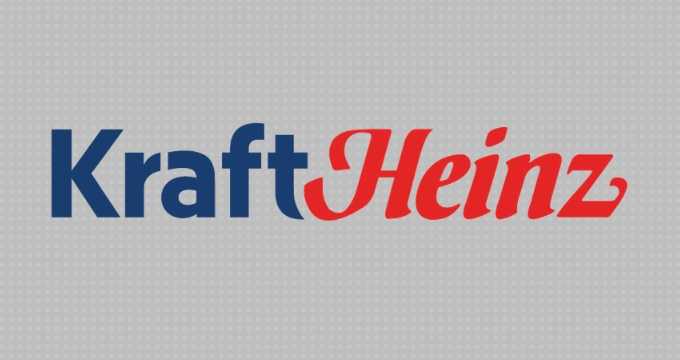PITTSBURGH & CHICAGO, U.S. – The Kraft Heinz Company yesterday reported third quarter 2019 financial results that reflected a one-time gain on the sale of the Company’s Canadian natural cheese business, lower net sales, and higher input costs.
“While our third-quarter results remain below our potential, we showed sequential improvement versus the first half, and I believe we are beginning to operate the business better,” said Kraft Heinz CEO Miguel Patricio.
“We are making good progress in identifying and addressing the root causes of past performance, as well as setting our strategic direction. Although there is still much work ahead, we’re encouraged by our improving performance, and are even more confident in our ability to turn around the Company and set a path of long term growth and profitability.”
Net sales were $6.1 billion, down 4.8 percent versus the year-ago period, including a negative 2.0 percentage point impact from divestitures and an unfavorable 1.7 percentage point impact from currency. Organic Net Sales decreased 1.1 percent versus the year-ago period.
Pricing increased 1.0 percent versus the prior year period, reflecting higher pricing in the United States, Rest of World and EMEA segments that more than offset lower pricing in Canada. Volume/mix was 2.1 percentage points below the prior year period as global growth in condiments and sauces was more than offset by lower shipments in the United States.
Net income attributable to common shareholders increased to $899 million and diluted EPS increased to $0.74, primarily reflecting the gain on the sale of Canadian natural cheese business and a non-cash impairment charge in the prior year period that was partially offset by debt extinguishment costs associated with the tender offers.
Adjusted EBITDA decreased 7.8 percent versus the year-ago period to $1.5 billion, including 3.2 percentage point impact from unfavorable currency and a negative 1.4 percentage point impact from divestitures.
Excluding these factors, the decrease was driven by declines in the United States and Canada, as well as higher general corporate expenses that more than offset growth in EMEA.
Adjusted EPS decreased 9.2% percent to $0.69, reflecting lower Adjusted EBITDA, higher taxes on adjusted earnings in the current period, and lower interest expense versus the year-ago period.
Kraft Heinz – Q3 2019 Business Segment Highlights
United States net sales were $4.4 billion, down 1.6 percent versus the year-ago period. Pricing increased 1.5 percentage points, driven by price increases across several categories, including Oscar Mayer cold cuts, Philadelphia cream cheese, macaroni & cheese, and Lunchables.
This more than offset pricing to offset lower key commodity costs in coffee and nuts. Volume/mix decreased 3.1 percentage points, primarily driven by lower retail takeaway in natural cheese, cold cuts and Lunchables, as well as unfavorable changes in retail inventory levels versus the prior year period. This more than offset consumption-led growth in condiments and sauces, and, to a lesser extent, nuts.
United States Segment Adjusted EBITDA of Kraft Heinz decreased 1.8 percent versus the year-ago period to $1.2 billion, driven by unfavorable volume/mix that more than offset higher pricing and favorable timing of marketing expenses versus the prior year period.
Canada
Canada net sales were $415 million, 21.1 percent lower than the year-ago period, including a negative 19.8 percentage point impact from the Canadian natural cheese divestiture and a 0.8 percentage point unfavorable impact from currency. Organic Net Sales decreased 0.5 percent versus the year-ago period. Pricing declined 2.6 percentage points, driven by increased promotional activity and unfavorable trade expense in cheese that more than offset higher pricing of macaroni and cheese.
Volume/mix increased 2.1 percent, reflecting growth from increased promotional support in cheese and pasta sauce, as well as a partial recovery of retail inventory levels in certain categories. These gains more than offset a decline in macaroni and cheese due to reduced promotional activity and lower coffee shipments versus the prior year period.
Canada Segment Adjusted EBITDA decreased 25.7 percent versus the year-ago period to $107 million, including a 14.9 percentage point impact from a divestiture and a 0.8 percentage point unfavorable impact from currency. Excluding the impact of these factors, the decrease versus the prior year was driven by lower pricing and higher input costs.
Kraft Heinz – EMEA
EMEA net sales were $612 million, down 3.5 percent versus the year-ago period, due to a negative 3.9 percentage point impact from currency. Organic Net Sales increased 0.4 percent versus the year-ago period. Pricing was up 0.2 percentage points, with higher pricing in the UK more than offsetting lower pricing in other regions. Volume/mix increased 0.2 percentage points, driven by favorable shipment timing versus the prior year period in Russia and foodservice growth across most regions that more than offset ongoing weakness in infant nutrition.
EMEA Segment Adjusted EBITDA increased 0.3 percent versus the year-ago period to $165 million, despite a negative 4.4 percentage point impact from currency. Excluding currency, Segment Adjusted EBITDA increased 4.7 percent, primarily reflecting lower supply chain costs.
Rest of World
Rest of World net sales of $688 million decreased 13.3 percent versus the year-ago period, including a negative 10.2 percentage point impact from currency and a 3.3 percentage point negative impact from the India nutritional beverages divestiture. Organic Net Sales increased 0.2 percent versus the year-ago period, driven by a 0.9 percentage point increase from pricing.
Price increases in Latin America, including in highly inflationary markets, more than offset lower pricing in Asia Pacific. Volume/mix decreased 0.7 percentage points, as ongoing weakness in China infant nutritional products more than offset growth from condiments and sauces, foodservice, and Indonesia beverages.
Rest of World Segment Adjusted EBITDA decreased 32.7 percent versus the year-ago period to $100 million, due to a negative 31.1 percentage point impact from currency, as well as higher supply chain costs and lower Organic Net Sales in Asia Pacific.


















